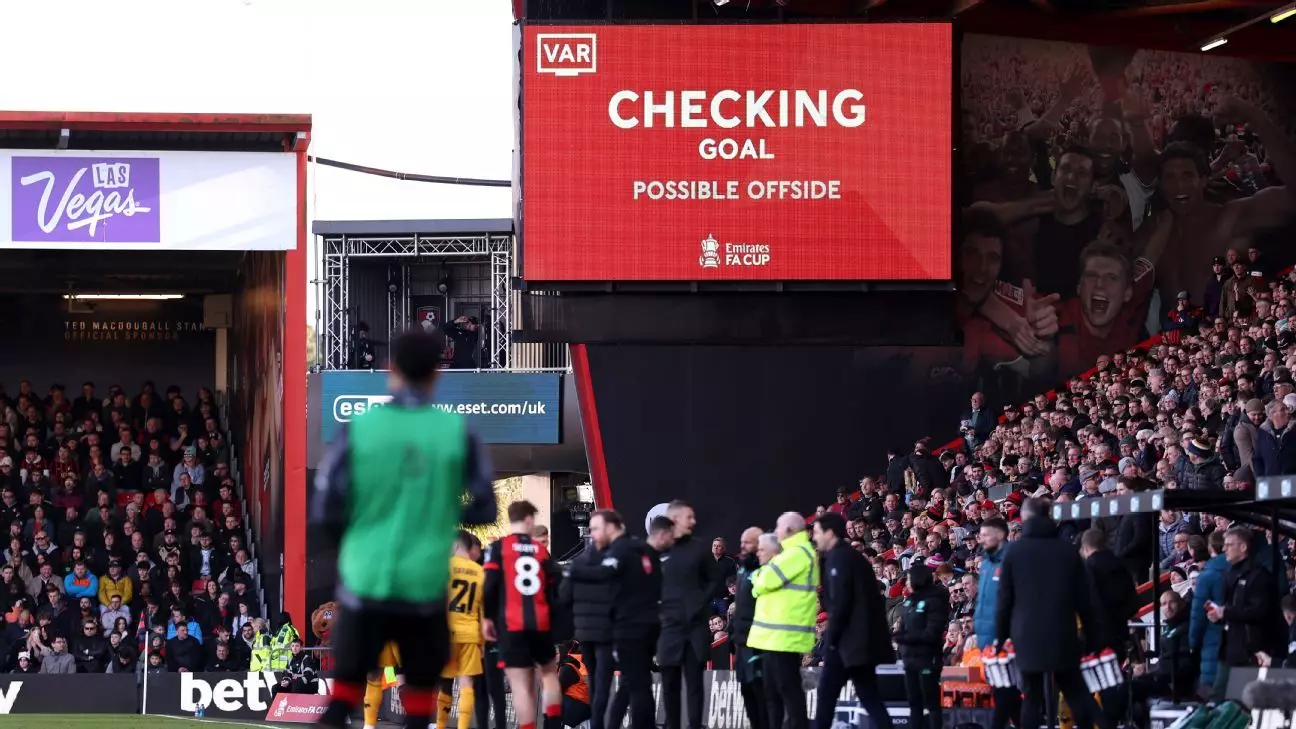The football community is at a pivotal crossroads as the potential expansion of Video Assistant Referee (VAR) technology looms on the horizon. Currently, VAR is primarily tasked with reviewing significant match-changing decisions such as goals, red cards, penalties, and mistaken identities. However, this limited scope overlooks many instances of on-field errors that influence the flow and fairness of the game. The suggestion from Howard Webb, the chief of Premier League referees, to broaden VAR’s remit signals a recognition that the technology’s potential is far from fully realized. It is not just about correcting obvious errors but about enhancing the overall integrity and fluidity of the game.
The idea of incorporating reviews for yellow cards and corners may seem minor at first glance, but their consequences are often overlooked. Misjudging a yellow card can impact player behavior and team strategy, while wrongly awarded corners can alter the flow of a game, leading to unnecessary frustration among players, coaches, and fans. Webb’s openness to this expansion suggests a desire for football to evolve into a cleaner, more accurate sport—one that embraces technological advances to mitigate human error.
Yet, expanding VAR responsibilities isn’t just a technical challenge; it’s a philosophical one. The core debate centers on whether technology should extend into areas that are inherently subjective or if it risks undermining the human element that makes football compelling. This raises questions about the limits of technology and the potential for over-reliance, which could strip the game’s spontaneity and emotional authenticity.
Balancing Fairness with Society’s Ethical Responsibilities
Webb’s candid acknowledgment of the abuse directed towards referees highlights a pressing issue that goes beyond technology. Referees, the custodians of fairness on the pitch, are increasingly targeted with hostility and threats, often fueled by societal intolerance. Incidents involving officials like Michael Oliver and Anthony Taylor are stark reminders that the sport’s fanbase sometimes crosses the line from passionate support to dangerous hostility.
This toxic environment not only endangers the safety of match officials but also threatens the integrity of the game itself. Webb’s comments underscore an urgent need for football organizations to foster respect, emphasizing that disagreement over decisions should never translate into personal attacks or threats. Society’s broader issue of intolerance manifests on the pitch and in digital spaces, revealing a troubling disconnect between the sport’s values of respect and contemporary social behaviors.
The discussion about match officials’ mental and physical well-being is critical. Without a safe environment, referees may feel discouraged or intimidated, which could diminish the quality and consistency of officiating at the highest levels. This situation necessitates stronger measures to combat abuse and to promote a culture of respect—both within football and society at large.
The Future of Refereeing: Challenges and Expectations
The controversy surrounding referees like David Coote adds a layer of complexity to the ongoing conversation about standards and accountability in officiating. Webb’s acknowledgment that Coote is unlikely to return to top-tier refereeing reflects how seriously misconduct is treated within the sport’s governing bodies. It also raises important questions about redemption and the pathways available for officials to regain trust after mistakes or misconduct.
The broader challenge lies in balancing accountability with fair treatment—ensuring referees are held responsible without subjecting them to undue harm or stigmatization. With technology evolving, there’s an opportunity to create a more transparent and just system for evaluating officiating performance. Yet, this requires a cultural shift not just in football, but in the societal attitudes toward mistakes and discipline.
As football grapples with these issues, the potential for expanding VAR’s role presents an exciting, if controversial, avenue for improving fairness. However, for technology to truly serve the sport, it must be accompanied by a commitment to respect, mental health, and ethical standards for all involved—players, officials, and fans alike. Only then can football truly evolve as a cleaner, more just, and more captivating game.


Leave a Reply